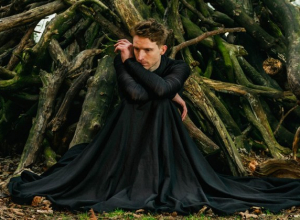Robert L. Drew, Father Of American Cinema Vérité, Dead At 90
By Victoria Pavlova in Movies / TV / Theatre on 31 July 2014
Drew's health had been on the decline for some time.
Robert L. Drew, an award-winning director and pioneer of the cinema verite genre, died this week at age 90. The celebrated filmmaker had more than 100 films on culture, politics and social issues in his catalogue, spanning over five decades. His family announced that he had died on Wednesday, via Reuters. Drew’s health had been deteriorating for some time.
Culture - Mort de Robert Drew, l'un des pères du « cinéma vérité »: Le cinéaste s... http://t.co/DmxCAEqtKi Store http://t.co/tMqQG29LRq
— Actu Europe (@LaPresse24h24) July 31, 2014"He had been declining for some time and it was not completely unexpected," his son, Thatcher Drew, said.
More: Malik Benjelloul, Swedish Filmmaker Behind Searching For Sugar Man, Dead At 36
The filmmaker’s vast and varied life experiences informed his creative process. Before going into cinema, he worked as a fighter pilot in WWI, and as an editor and correspondent for Life Magazine. Later on, he went on to develop the “fly on the wall“ style of documentary.
He also founded the documentary film company Drew Associates in the early 1960s. Many of his films were shown on television and screened at international film festivals.
"He believed in the pure form of cinema vérité. It was a strict code that allowed no directing of subjects, no set up shots and no on-camera narrator or correspondent," his son explained.
His best known films include Faces of November – a short film about Kennedy’s funeral after his assassination and The Chair, which told the story of a criminal finding redemption.
Contactmusic
Suggested

Leisure Festival - Dreamland in Margate
On the same day that Glastonbury welcomed back Margate's adopted sons, The Libertines, Margate itself put on it's very own Leisure Festival as it...

Pretty Fierce talk to us about collaborating with Doja Cat, emetophobia, arena tours and staying "true to yourself" [EXCLUSIVE]
Sheffield's very own all girl group Pretty Fierce are still on a high after the recent release of their debut single - 'Ready For Me'.

Will Varley & Jack Valero - The Astor Theatre Deal Live Review
Three nights before the end of his current tour Will Varley returned to his home town of Deal to delight a sold out crowd in The Astor Theatre.

WYSE talks to us about her "form of synaesthesia", collaborating with Radiohead's Thom York and the prospect of touring with a band [EXCLUSIVE]
With only a few days to go before Portsmouth based songstress and producer WYSE releases her new single, 'Belladonna', we caught up with her to find...
Advertisement

Bay Bryan talks to us about being a "wee queer ginger", singing with Laura Marling and being inspired by Matilda [EXCLUSIVE]
Colorado raised, Glasgow educated and Manchester based Bay Bryan is nothing if not a multi-talented, multi-faceted artist performing as both...

Keelan X talks to us about staying true to "your creative vision", collaborating with Giorgio Moroder and being "a yoga nut" [EXCLUSIVE]
Former Marigolds band member Keelan Cunningham has rediscovered his love of music with his new solo project Keelan X.
![Luke De-Sciscio talks to us about having the courage to be yourself, forgiving that which is outside of one's control and following whims [EXCLUSIVE] Luke De-Sciscio talks to us about having the courage to be yourself, forgiving that which is outside of one's control and following whims [EXCLUSIVE]](https://images.contactmusic.com/images/home/homepage/luke-de-sciscio-abof-a.jpg)
Luke De-Sciscio talks to us about having the courage to be yourself, forgiving that which is outside of one's control and following whims [EXCLUSIVE]
Wiltshire singer-songwriter Luke De Sciscio, formally known as Folk Boy, is set to release is latest album - 'The Banquet' via AntiFragile Music on...

Annie Elise talks to us about the challenges a female producer has to face and "going through a year of grief and sickness" [EXCLUSIVE]
Electronic music pioneer and producer Annie Elise says that the release of her first EP - 'Breathe In, Breathe Out' feels "both vulnerable and...
Advertisement
